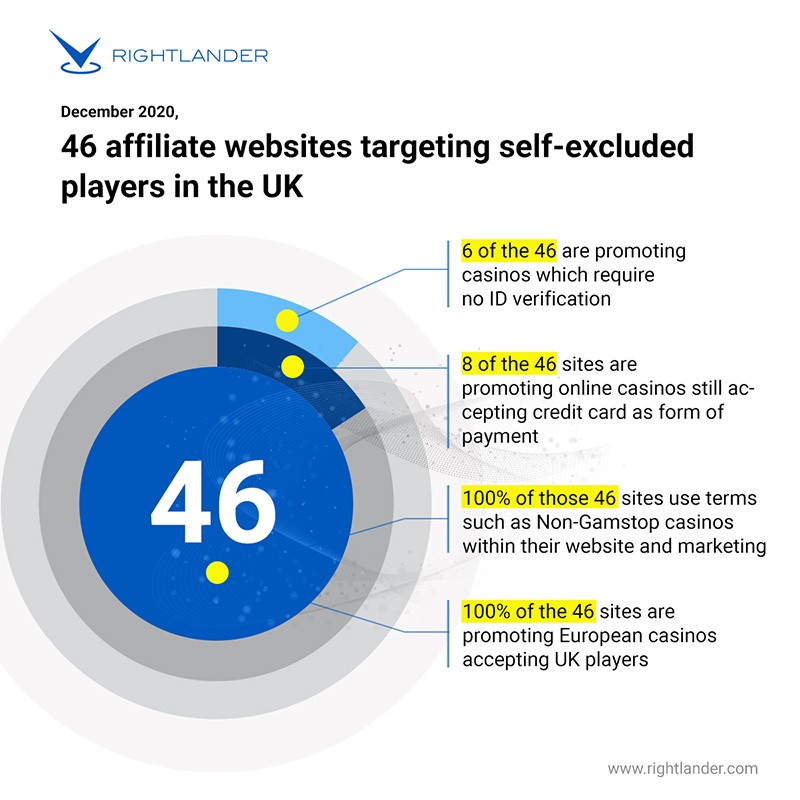It will come as no surprise to most of us that there are marketers out there who are willing to exploit certain people’s vulnerabilities.
However, one particular marketing practice, which targets the self-exclusion tool Gamstop, is particularly troubling. If allowed to continue unchecked then it could lead to many vulnerable gamblers being exploited, something that gambling regulators and charities are working hard to avoid.
What is Gamstop?
GamStop was launched in April 2018 as a mandatory self-exclusion scheme for licensed UK gambling operators that allows people to take control of their gambling, especially if it has gotten out of hand. Gamblers register their details and choose how long they want to take a break for, meaning they should then not be able to log onto any gambling websites. Gamblers can exclude themselves permanently if they choose, which prevents them signing up with any of the gambling companies in Gamstop’s database in the future.
Although Gamstop offers some great protections for gamblers who use it, it is still limited in how much it can control. The list of gambling sites within Gamstop’s system is typically orientated around licenced operators who have known owners and operatives. However, there is a world of unlicensed operators not within its database that are still very accessible to players in the UK, regardless of whether they are signed up to Gamstop or not.
Throughout December 2020, Rightlander crawled websites from a UK IP address looking for any that appeared to be deliberately targeting self-excluded gamblers in the UK. Typically this would be done by a marketer building a website or social media presence with information about ‘Casinos not on Gamstop’ or ‘Bookmakers not on Gamstop’ or something to that effect.
This exploitative marketing technique seems to take advantage of two things; the existence of unlicensed operators who are able to take money from UK gamblers and the fact that quitting gambling, if it has become an addiction, can be incredibly difficult.
What did Rightlander find?
In total we found 46 websites that appeared to be targeting problem gamblers with online gambling related content.
Each of the 46 websites used the term “non Gamstop casinos’ (or very similar keywords) within their content. These marketers would quite often provide lists, suggestions and recommendations to players who had previously self-excluded from online gambling.
6 of the identified websites were also found to be advertising casinos that did not require ID verification, and 8 of the 46 websites were still accepting credit card as a form of payment even after a ban on credit card payments for online gambling was introduced in April 2020.
Rightlander has identified at least 84 casino operators that accept UK players, but do not have a license to operate within the UK. We also found another 34 operators that we suspected were also taking money from UK players, once again without any legitimate license to operate in the UK.
Brean Wilkinson, Product Advisor at Rightlander commented: “The findings from this study highlight just how difficult it is to protect vulnerable gamblers.”
Many of these players who choose to explore “Non gamstop casinos’ will have limited protections and safeguards in place.”
“This cannot be a good thing for an industry that is doing everything it can to reduce harm caused by problem gambling,” he added.
Rightlander constantly monitors websites that are targeting keywords that involve ‘Gamstop’ or ‘Not on Gamstop’, along with many other compliance-related terms. If you want to find out more about Rightlander’s affiliate monitoring services, please get in touch: [email protected]



 by Shenaly Amin | 09 Feb 2021
by Shenaly Amin | 09 Feb 2021
 3-min read
3-min read
